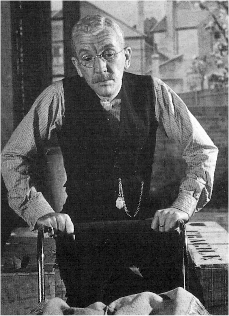
This Happy Breed is a play by Noël Coward. It was written in 1939 but, because of the outbreak of World War II, it was not staged until 1942, when it was performed on alternating nights with another Coward play, Present Laughter. The two plays later alternated with Coward's Blithe Spirit. The title, a reference to the English people, is a phrase from John of Gaunt's monologue in Act II, Scene 1 of Shakespeare's Richard II.
The story of the play concerns the lower middle-class[1][2] Gibbons family between the end of World War I and the outbreak of World War II. It anticipates the non-violent ways in which social justice issues might be incorporated into post-war national reconstruction, examines the personal trauma caused by the sudden death of sons and daughters and anticipates the forthcoming return of English men from the war. It is also an intimate portrait of the economy and politics of Great Britain in the 1920s and 1930s (such as the General Strike of 1926), as well as showing the advances in technology – the arrival of primitive crystal radio sets and telephones, home gas lights being replaced by electricity and mass broadcast radio.
This Happy Breed is one of a very few Coward plays to deal entirely with domestic events outside an upper class or upper middle class setting. A number of scenes are reminiscent of previous Coward works, such as Cavalcade (1931) or the short play Fumed Oak from Tonight at 8.30 (1936).
- ^ "Haymarket Theatre", The Times, 1 May 1943, p. 2
- ^ "Archived copy" (PDF). Archived from the original (PDF) on 7 July 2020. Retrieved 6 January 2022.
{{cite web}}: CS1 maint: archived copy as title (link)